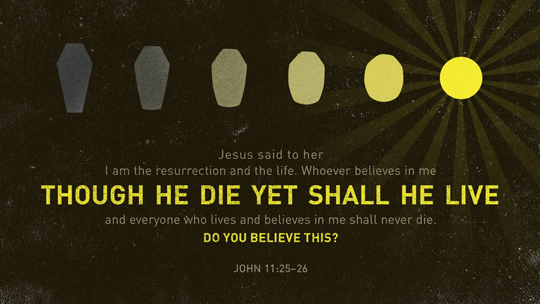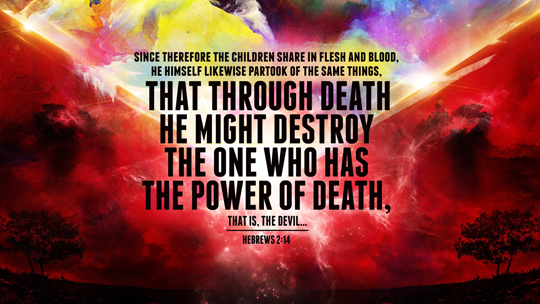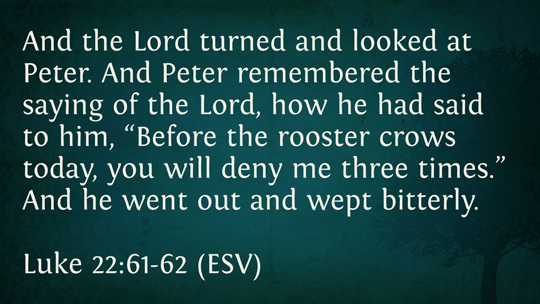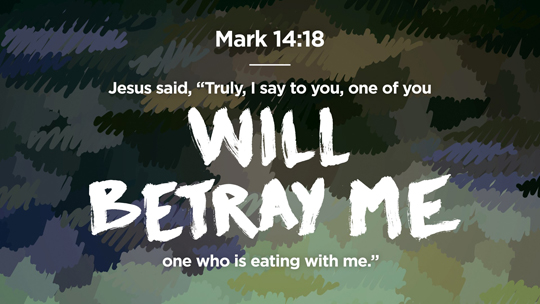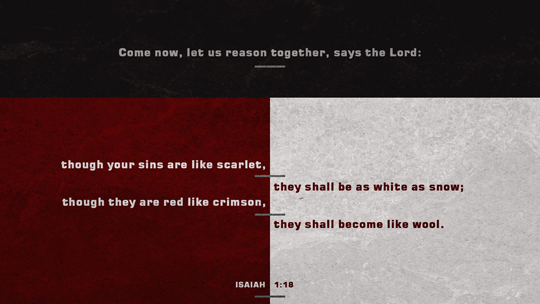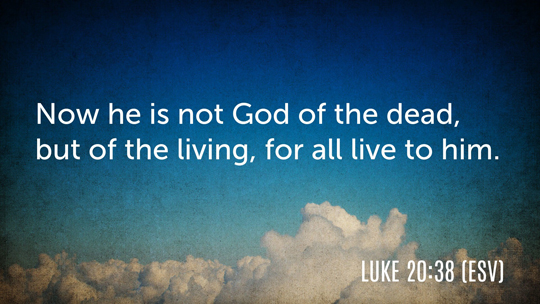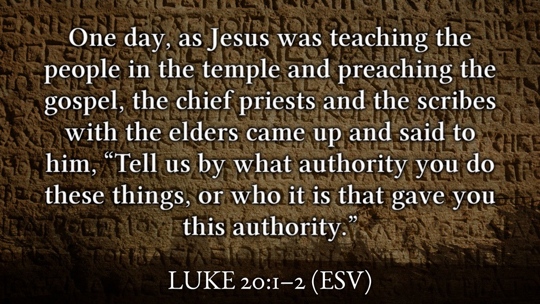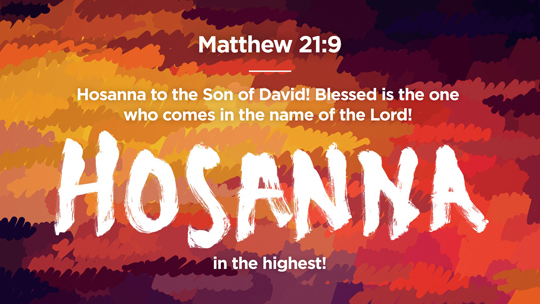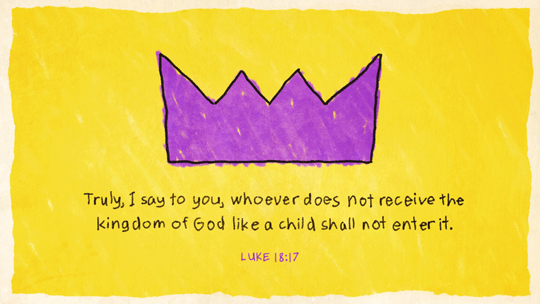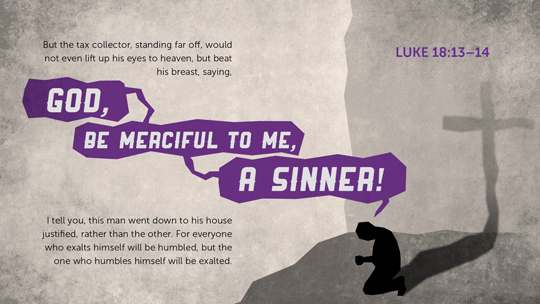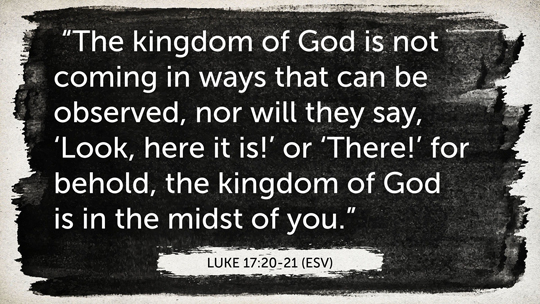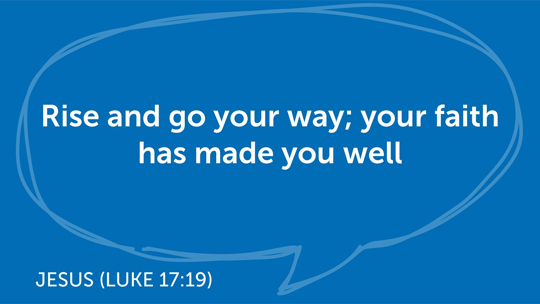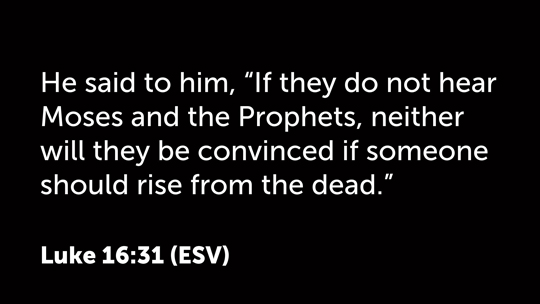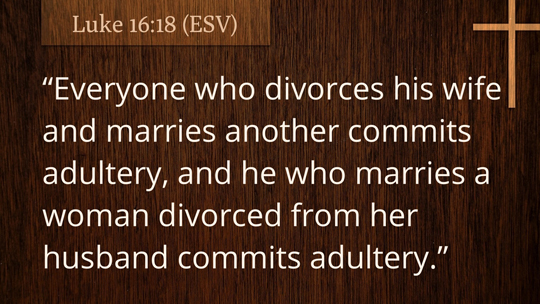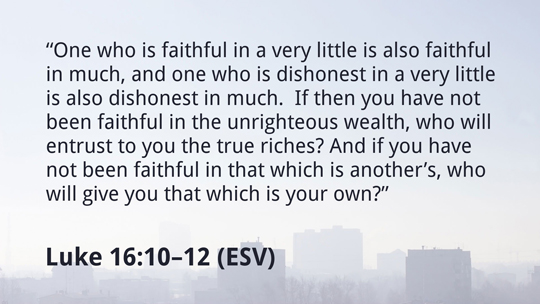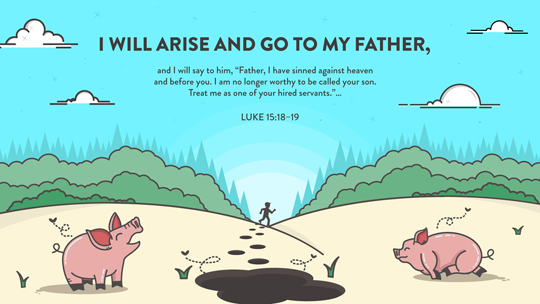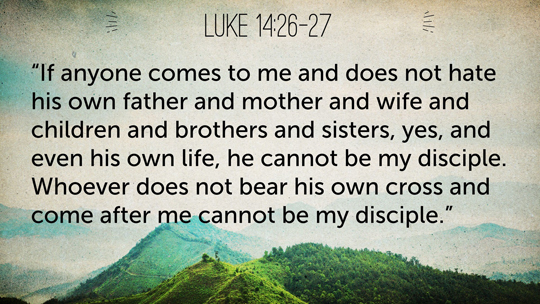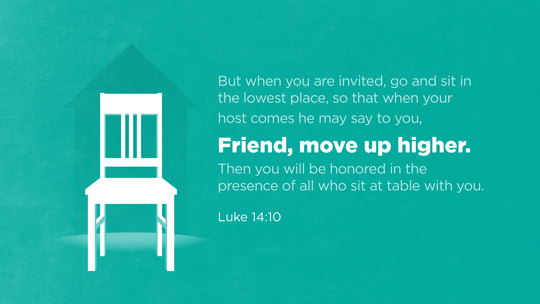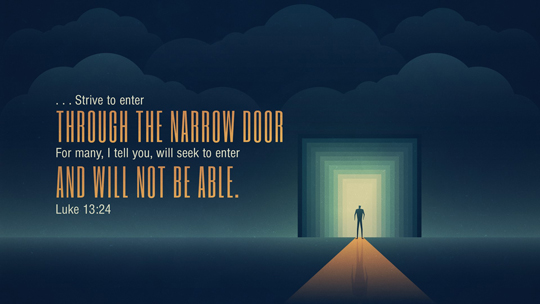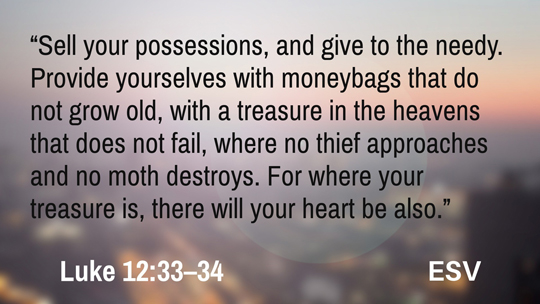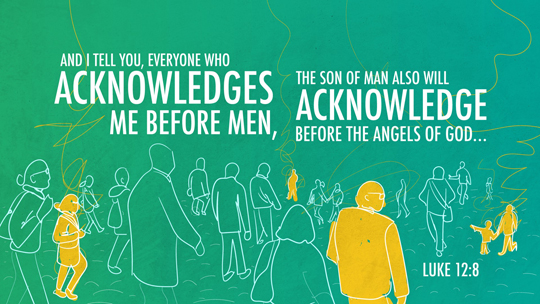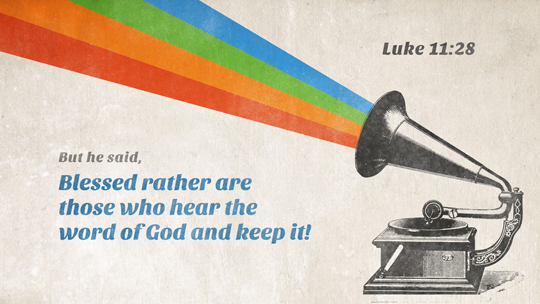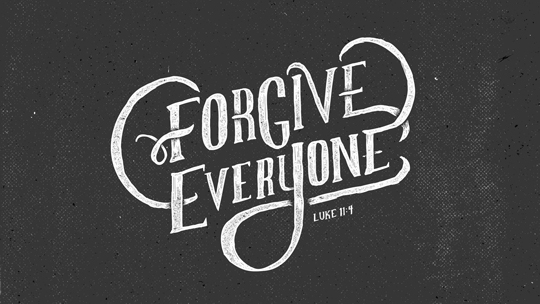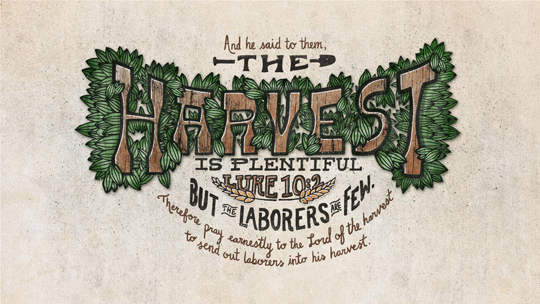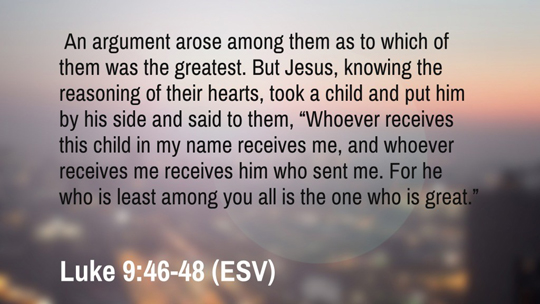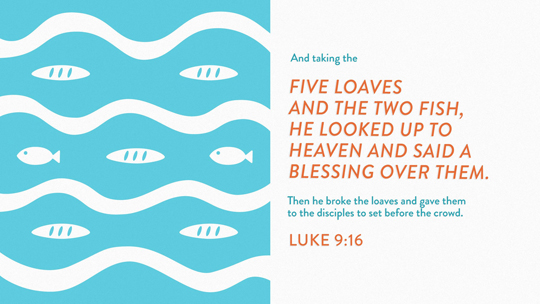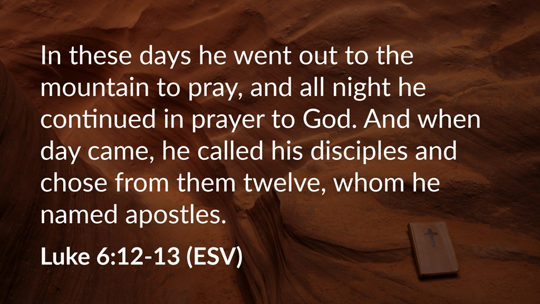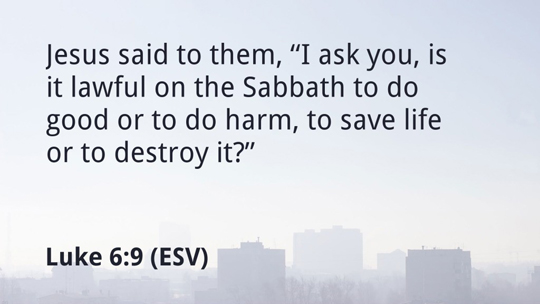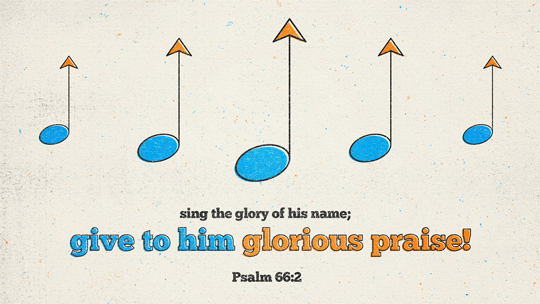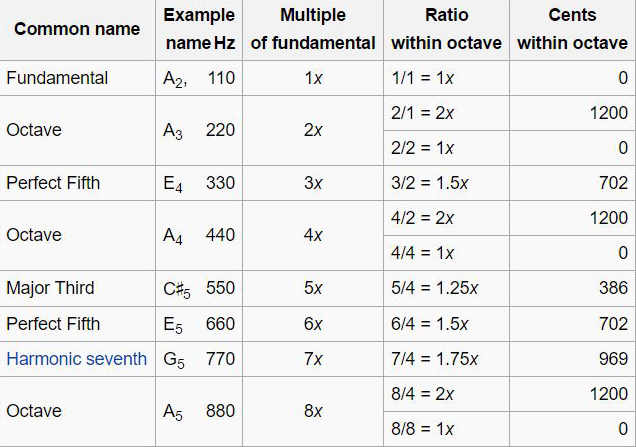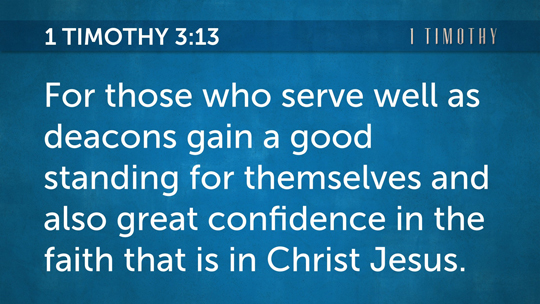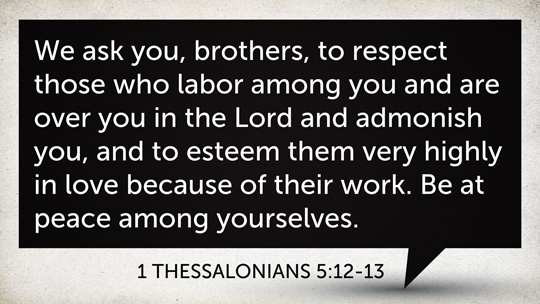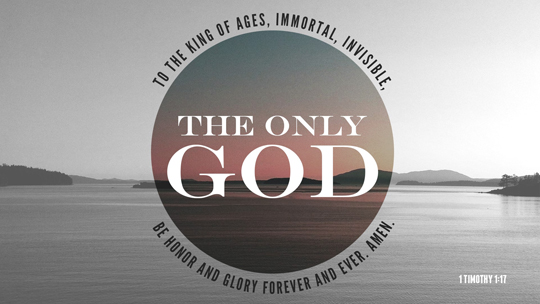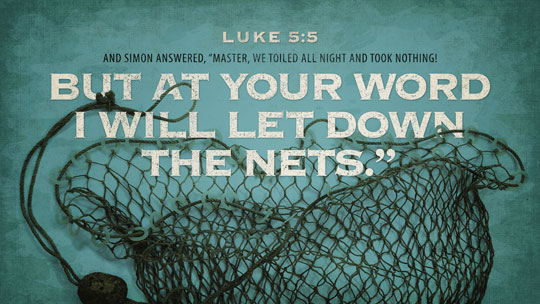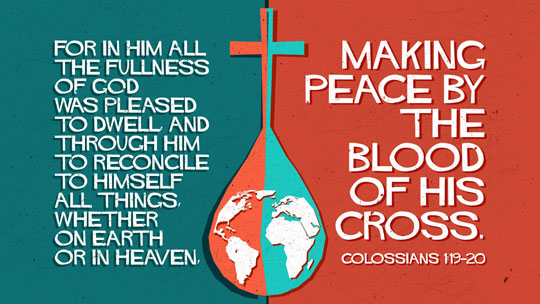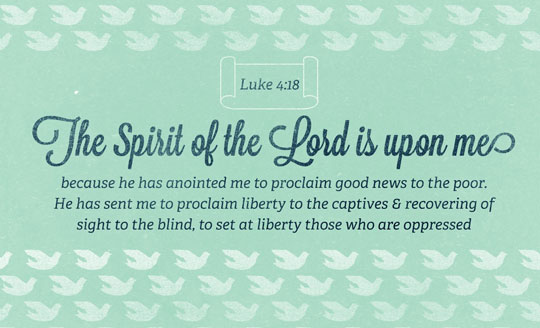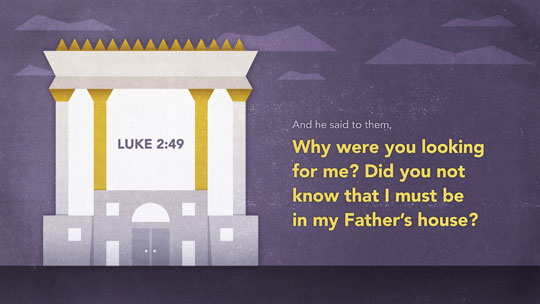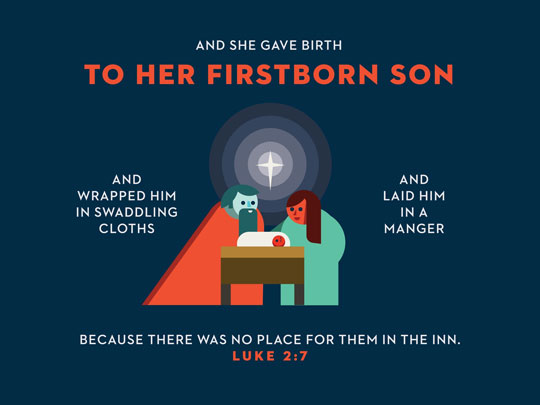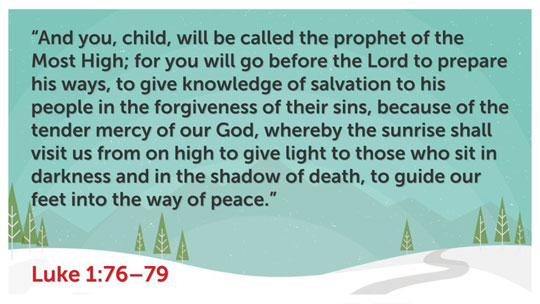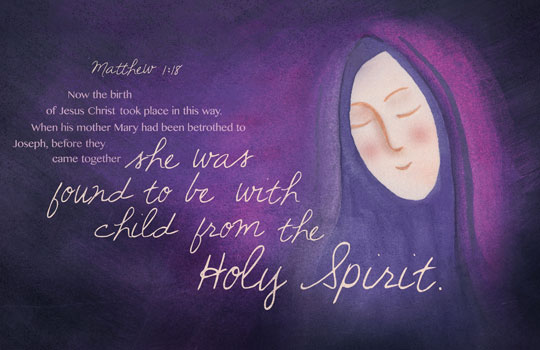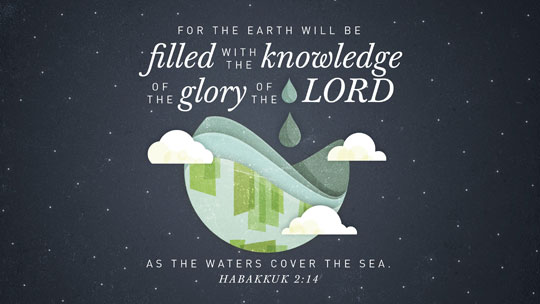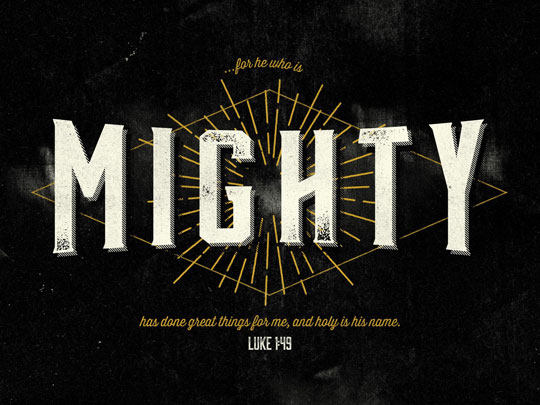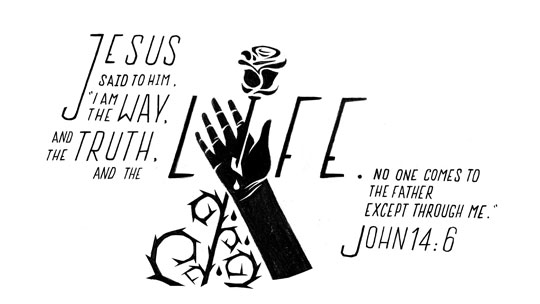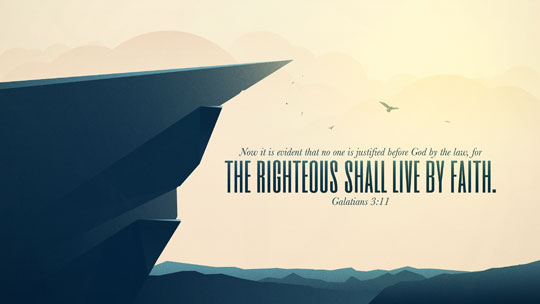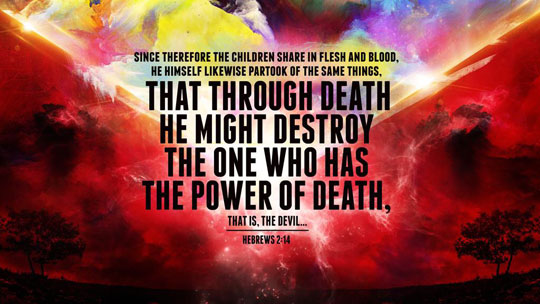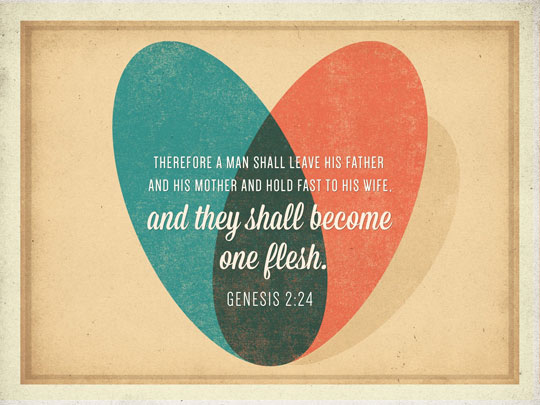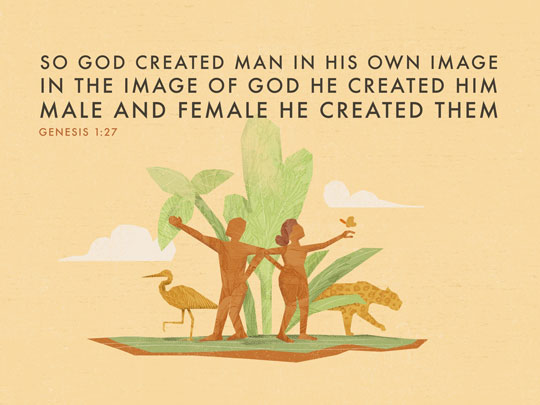The following is a longer version of a case for the evidence of the resurrection of Jesus. Here is a PDF version. You can read a shorter version here. You can learn more about Jesus’ death and resurrection by visiting https://wbcommunity.org/crucifixion and https://wbcommunity.org/resurrection-resources.
It is impossible to exaggerate the importance of the resurrection of Jesus Christ. The easiest way to grasp the importance of the resurrection is to imagine what would have resulted had Jesus not risen from the grave. If he had been crucified and sealed in a tomb, never to be seen again, how would we know that he was the Son of God, the Messiah, truly God and truly man? If he had remained in the grave, how would we know that his death on the cross accomplished anything? If he didn’t rise in an immortal body, how could we have any hope for life after death?
Fortunately, Jesus did rise from the grave. He “was declared to be the Son of God in power according to the Spirit of holiness by his resurrection from the dead” (Rom. 1:4; notice also the presence of all three Persons in the Trinity in that verse). In that way, the resurrection proves who Jesus is and demonstrates that he reigns in power.
Jesus “was delivered up for our trespasses and raised for our justification” (Rom. 4:25). According to theologian Wayne Grudem, “By raising Christ from the dead, God the Father was in effect saying that he approved of Christ’s work of suffering and dying for our sins, that his work was completed, and that Christ no longer had any need to remain dead. There was no penalty left to pay for sin, no more wrath of God to bear, no more guilt of liability to punishment—all had been completely paid for, and no guilt remained.” Similarly, Tim Keller writes, “Jesus had risen, just as he told them he would. After a criminal does his time in jail and satisfies the sentence, the law has no more claim on him and he walks out free. Jesus Christ came to pay the penalty for our sins. That was an infinite sentence, but he must have satisfied it fully, because on Easter Sunday he walked out free. The resurrection was God’s way of stamping paid in full right across history so that nobody could miss it.”
When Jesus rose from the grave, he rose as “the firstfruits of those who have fallen asleep” (1 Corinthians 15:20). That means that his resurrection insures ours. Though Jesus is the only one to be resurrected so far in history (as opposed to revivified, which is what happened to Lazarus and a handful of others who were brought back to life, only to die again), all who are united to Christ by faith will be raised in the future when Jesus returns. Like Jesus, we will have an immortal, glorified body, one that cannot get sick and die. This is the great hope for Christians everywhere. The resurrection shows that God is making a new creation, one that began with Jesus, continues with our spiritual rebirth, and will culminate in resurrected bodies in a new heaven and earth.
That is the meaning of the resurrection in a nutshell.
But how do we know it’s true? If someone could somehow prove that Jesus never rose from the grave, Christianity would be refuted. For as Paul writes, “And if Christ has not been raised, your faith is futile and you are still in your sins. Then those also who have fallen asleep [i.e., died] in Christ have perished. If in Christ we have hope in this life only, we are of all people most to be pitied” (1 Cor. 15:17-19). Certainly, if the resurrection were false, then Christianity would be, too.
Unfortunately for us, we can’t go back and time and see what happened. Like any historical event, we don’t have access to it. And like all historical events before the advent of photography and video, we can’t see it. Sometimes we have physical, archaeological evidence; sometimes we do not. Often, we must rely solely on the reporting of eyewitnesses and ancient historians. Fortunately for us, there is excellent evidence that the resurrection of Jesus Christ is an historical event. In order to understand this evidence, we’ll look at various sources, and then conclude what historical facts can be known about the death and literal, bodily resurrection of Jesus. There are three broad categories of sources: the New Testament, extra-biblical Christian writings, and non-Christian historical documents.
Why We Can Trust the New Testament
The best sources for knowing Jesus are the twenty-seven books of the New Testament. It would be a mistake to say that the New Testament is one witness to Jesus’ resurrection. Rather, the New Testament consists of twenty-seven separate documents, written by nine different authors (Matthew, Mark, Luke, John, Paul, the unknown author of Hebrews, James, Peter, and Jude). These authors did not sit down together and decide what they were going to write about. In other words, they didn’t conspire to write a myth or a legend, something they knew to be false. Rather, each one wrote, independently of the others, about what they had seen and heard, and what God revealed to them. We know that they didn’t write together because sometimes they had significant disagreements, as can be seen in Galatians 2:11.
The amazing thing is that these authors produced a very cohesive, unified document. And they did this while writing at different times, from different places, to different locations. This is what James White calls “multifocality.” If the authors of these books were not inspired by God to write these books, they would not be so unified in thought. To understand the importance of having multiple witnesses writing in multiple locations, to multiple destinations, at various times, we can compare the origin of the New Testament to the origin of the Qur’an or the Book of Mormon and other works that Joseph Smith wrote. The story of the Qur’an is that the angel Gabriel supposedly appeared to Muhammad and revealed certain teachings, which he recited to his community. These teachings were memorized and written down after Muhammad’s death. Similarly, Joseph Smith claimed to receive a message from an angel, who revealed to him golden plates that only he could read, through the assistance of “seer stones.” He then translated the “Reformed Egyptian” of those plates into English. These stories are rather suspicious because they both involve one man and an angel. By contrast, the New Testament was written by several men, who saw God in the flesh. Jesus had a public ministry, died in public, and appeared to many individuals after his resurrection.
I should also add that we are quite certain that all of the books of the New Testament were written in the first century A.D. Most of the New Testament was likely written before the destruction of Jerusalem in A.D. 70. It is also important to know that various other “gospels” such as the Gospel of Thomas or the Gospel of Judas come from the second century or later. Additionally, we should observe that the authors of the New Testament were some of the original twelve disciples (Matthew, John, Peter), two of Jesus’ brothers (James, Jude), an apostle to whom the risen Jesus appeared (Paul), and those closely related to the apostles. Mark was closely related to Peter (1 Peter 5:13) and tradition states that his Gospel is based on Peter’s recollections. Mark also travelled with Paul (Acts 12:25; 13:5). Luke was another of Paul’s travel companions (see the “we” passages in Acts, which was written by Luke, beginning with Acts 16:10). Both Mark and Luke are mentioned by name in Colossians 4 (verses 10 and 14, respectively) and 2 Timothy 4:11. We don’t know who the author of Hebrews is, but he surely had access to the apostles, for he mentions Timothy, who was the disciple of Paul (Hebrews 13:23).
In addition to the above observations, we can test the historical reliability of the New Testament using three criteria. The first is bibliographical test, which seeks to confirm whether the text we now have is an accurate representation of the original New Testament books. (Bear in mind that these books were written by hand, and copied by hand, until the advent of the printing press in the fifteenth century. We don’t have the original copies—the autographs—of these books, but that is no cause for concern, since we don’t have the original copy of any book from the ancient world.) The more manuscripts we have, and the closer they are in time to the original documents, the greater our confidence is that we have an accurate representation of the originals. We now have over 5,700 Greek manuscripts of parts or all of the New Testament, more than 10,000 Latin Vulgate manuscripts, and more than 9,300 other early translations. The earliest manuscript evidence we have comes thirty to fifty years after the original writing, and the earliest complete manuscript, the Codex Sinaiticus, was written around A.D. 350, less than three hundred years after the last book of the New Testament was written.
Now, that may not seem very impressive, but let us compare these figures to other historical works of the same era The Roman historian Tacitus’s two major works, the Histories and the Annals were written around A.D. 100, and they exist in incomplete form in only two manuscripts from the ninth and the eleventh centuries. We have only eight manuscripts of History of the Peloponnesian War by Thucydides, written in the fifth century B.C., and the oldest manuscript is dated around A.D. 900, some thirteen hundred years later. Julius Caesar’s Gallic War was written around 50 B.C., and we have only ten manuscripts, the oldest of which dates to around nine hundred years later. The New Testament is the best-attested collection of documents from antiquity. This fact doesn’t prove that the content of these books is historically accurate, but it does give us confidence that we have access to the content of the original New Testament documents. These thousands of manuscripts assist those in textual criticism, the practice of removing transcription errors from manuscripts until the original content is restored.
The second test is the internal test: do the documents claim to be history? Luke claims that his Gospel was written on the basis of eyewitness testimony (Luke 1:1-4), and the sequel to this book, Acts, picks up where the first book left off. Peter and John also claim to report what they have personally witnessed (2 Peter 1:16-18; 1 John 1:1-3) and Paul states that the gospel he taught was received through a revelation by Jesus and confirmed by visiting Peter and James in Jerusalem (Galatians 1:11-19).
The third test is external: are the contents of the New Testament verified through other writings and through archaeological evidence? The writings of the early Church Fathers, as well as non-Christian historians such as Josephus and Tacitus, confirm some of the details of the New Testament. While we do not have archaeological evidence for every event in the New Testament, there is no such evidence that refutes what we read in its pages. Many of the historical details recorded by Luke in his Gospel and in Acts, such as the names of political leaders and the titles used for those leaders in various places, are accurate. That may not seem impressive until we understand that in different localities, leaders had different titles, and Luke had no access to extensive reference works, much less the Internet. New Testament scholar Colin Hemer has identified eighty-four facts in Acts 13-28 that have been confirmed by historical and archaeological evidence, showing that Luke was a very careful historian. Additionally, precise locations in Jerusalem mentioned in John’s Gospel, such as the pool of Bethesda (John 5:2) and the pool of Siloam (John 9:7) have been discovered, revealing that John had a very accurate knowledge of Jerusalem.
Two more observations about Scripture: The Bible stands up to the criterion of embarrassment, a test that is used to determine whether a document is reliable. If a text has potentially embarrassing details, it is assumed that they are reported because the author is committed to telling the truth and is not concerned with how the truth might appear. Many of the great figures in the Bible, from Moses to David to disciples like Peter, are depicted as very flawed individuals. This is particularly true of the disciples, who are shown to be dim-witted (Mark 9:32; Luke 18:34; John 12:16), not concerned about Jesus (they fall asleep while he is praying to God the Father—Mark 14:32-41), wrong in their theology (Jesus rebukes Peter, calling him “Satan”—Mark 8:33), and cowardly, fleeing from Jesus when he is arrested (Matt. 26:56) and denying knowing him (Matt. 26:69-75). The way Jesus is depicted could be construed as embarrassing, for he is called “out of his mind” (Mark 3:21), a “drunkard” (Matt. 11:19), demon-possessed (John 7:20; 8:48), and “insane” (John 10:20). (To be clear, Jesus was none of these things, but he was—and is—often misunderstood.) Add to these potentially embarrassing some very difficult teachings of Jesus, and it is very hard to imagine anyone fabricating this story.
The second additional observation about Scripture is that the Gospels and Acts seem to be historical reporting. It is true that these books contain amazing details, such as Jesus supernaturally multiplying food, raising people from the dead, casting out demons, and so forth. Yet the Gospels and Acts show amazing restraint, even as they report such details. One only need compare these books to later works like the Gospel of Peter to see the difference between historical reporting and fantastical legend. Those who have studied the Gospels and Greco-Roman biographies (bioi) have recognized similarities between the two. C. S. Lewis put it this way: “All I am in private life is a literary critic and historian, that’s my job. And I’m prepared to say on that basis if anyone thinks the Gospels are legends or novels, then that person is simply showing his incompetence as a literary critic. I’ve read a great many novels and I know a fair amount about the legends that grew up among early people, and I know perfectly well the Gospels are not that kind of stuff.”
So, the New Testament claims to be history, has external evidence to support its claims, is the best-attested collection of documents in ancient history, has details no one would make up, and appears to be historical reporting. What does it say about Jesus’ resurrection?
Evidence from the New Testament
All four Gospels show that Jesus was raised from the dead. First, they claim that after being beaten, flogged, and made to wear a crown of thorns, Jesus was crucified (Matthew 27, Mark 15, Luke 23, John 19).The practice of crucifixion is well attested in various Roman histories. Death on a cross was reserved for the worst criminals, and it was carried out by Roman soldiers who knew how to kill. The four Gospels leave no doubt that Jesus died.
The Gospels also report that Jesus was buried in the tomb of Joseph of Arimathea, a rich man, and that some women witnessed the location of this tomb (Matt. 27:67-61; Mark 15:42-47; Luke 23:50-56; John 19:38-42). This tomb was sealed and guarded by soldiers (Matt. 27:62-66). Some women returned to the tomb on the third day and found that it was empty, a fact corroborated by John and Peter (Matt. 28:1-10; Mark 16:1-8; Luke 24:1-12; John 20:1-10). The risen Jesus was then seen by various groups of people. Mary Magdalene and “the other Mary” saw him and touched his feet (Matt. 28:9). He appeared to two disciples on the road to Emmaus and he ate with them (Luke 24:13-30). Jesus appeared to the eleven disciples (Judas, the twelfth, had betrayed Jesus and then committed suicide) multiple times, showing that he had risen in a glorified body (Luke 24:36-40; John 20:19-20, 26-27). His body bore the wounds of crucifixion (Luke 24:40; John 20:20, 27). He even ate with them and prepared breakfast for them (Luke 24:41-43; John 21:12-14). Ghosts or hallucinations can’t be touched and they can’t eat, let alone cook breakfast. Jesus died, and then he was alive again, able to appear and disappear at will. His resurrected body later ascended into heaven (Luke 24:50-53; Acts 1:9).
A summary of Jesus’ post-resurrection appearances is as follows:
1. Mary Magdalene (John 20:10-18)
2. Mary and the other women (Matt. 28:1-10)
3. Peter (Luke 24:34; 1 Cor. 15:5)
4. two disciples on the road to Emmaus (Luke 24:13-15)
5. ten apostles (Luke 24:36-39)
6. eleven apostles (John 20:24-31)
7. seven apostles (John 21)
8. all of the apostles (Matt. 28:16-20)
9. five hundred disciples (1 Cor. 15:6)
10. James (1 Cor. 15:7)
11. again to all the apostles (Acts 1:4-8)
12. the apostle Paul (Acts 9:1-9; 1 Cor. 15:8; 9:1).
The last person on that list is the apostle Paul. He had a very unique encounter with Jesus on the road from Jerusalem to Damascus (Acts 9). Additionally, Paul witnesses to the resurrection several times in his letters. What is interesting is that many of Paul’s letters were written before the Gospels, and various New Testament scholars believe that even within these letters, Paul uses teachings that date to the first few years after Jesus’ death and resurrection.
For example, Paul wrote the letter to the Romans around A.D. 55-58. Jesus most likely died in A.D. 30, though many believe the year was 33. (Given the data we have, either year is possible.) Within twenty-five years of Jesus’ death and resurrection, Paul wrote this letter. At the beginning of the letter, he writes:
who was born from the seed of David according to the flesh;
who was declared the Son of God with power according to the spirit of holiness by the resurrection from the dead. (Romans 1:3b-4a)
Because of the language used here (in the original Greek), many scholars believe Paul is quoting an early creed or hymn regarding Jesus, one that goes back to the earliest years of Christianity. The parallel structure of the lines (there are two parallel relative clauses; “who was born/who was declared” are both aorist participles in the genitive case in Greek; both lines have “according to”) as well as other details in the language indicate that this was an early hymn from the church in Jerusalem and was approved by the apostles Peter, James, and John.
In a similar way, Paul passes on to the Corinthians an early teaching regarding the resurrection that he most likely received from the Jerusalem apostles. This passage is found in 1 Corinthians 15:3-8:
For I delivered to you as of first importance what I also received:
that Christ died for our sins in accordance with the Scriptures,
that he was buried,
that he was raised on the third day in accordance with the Scriptures,
and that he appeared to Cephas,
then to the twelve.
Then he appeared to more than five hundred brothers at one time,
(most of whom are still alive, although some have fallen asleep).
Then he appeared to James,
then to all the apostles.
Last of all, as to one untimely born, he appeared also to me.
I have arranged the text in such a way as to bring out its parallel structure. Notice there are four “that” phrases and four “then” phrases (ὅτι and εἶτα/ἔπειτα, respectively, in the Greek). Paul also uses technical terms (“delivered” and “received”) to indicate that this teaching was a tradition that he received from others. This letter was written in A.D. 54 or 55, but this particular teaching is even closer to the resurrection. Given that Paul converted to Christianity within a few short years after Jesus’ death, and that he visited Peter and James in Jerusalem three years later (Gal. 1:18), it seems quite possible that Paul received this early teaching regarding the resurrection from eyewitnesses, four to six years after the event took place.
It is important to observe the early dates of these teachings because there have been many skeptics who claim that the teachings of Christianity are myths that developed over time. They may grant that Jesus was a real person who died by crucifixion. But these skeptics claim that Jesus’ followers invented many elements of the Gospels, including his resurrection. However, these early teachings show that the resurrection of Jesus was taught from the beginning, and that it was not a legend created by subsequent generations.
We should also note that both Romans and 1 Corinthians were public letters, meant to be read aloud to a broad audience (Rom. 1:7; 1 Cor. 1:2). Paul mentions several resurrection witnesses in 1 Corinthians including Peter (or Cephas, the Aramaic rendering of his name), “the twelve” (the corporate title of the original disciples of Jesus, though the actual number was eleven, since Judas committed suicide after betraying Jesus), James, and five hundred others, many of whom are still alive some twenty-five years later. Paul is indicating that if people have questions about whether the resurrection actually happened, they can go talk to these witnesses. (There are several individuals, some of whom served as minor figures in the Gospels, who are named quite specifically in those books. It is believed that the naming of so many people was one way that the Gospel writers sought to authenticate their biographies of Jesus.)
Paul’s writings, his sermons in Acts, and claims of the Gospels all attest to some basic facts regarding Jesus’ death, burial, and resurrection. William Lane Craig provides the following table to help us see that fact.
| 1 Corinthians 15:3-5 |
Acts 13:28-31 |
Mark 15:37-16:7 |
| Christ died . . . |
Though they could charge him with nothing deserving death, yet they asked Pilate to have him killed |
And Jesus uttered a loud cry and breathed his last. |
| he was buried . . . |
they took him down from the tree and laid him in a tom |
And he [Joseph] bought a linen shroud, and taking him down, wrapped him in the linen shroud and laid him in a tomb. |
| he was raised . . . |
But God raised him from the dead . . . |
“He has risen, he is not here; see the place where they laid him.” |
| he appeared . . . |
. . . and for many days he appeared to those who came up with him from Galilee to Jerusalem, who are now his witnesses to the people. |
“But go, tell his disciples and Peter that he is going before you to Galilee; there you will see him.” |
The New Testament is well-attested, its contents are verified by external sources, it contains teachings that come from years right after Jesus’ death and resurrection, and it circulated quickly throughout the Roman Empire. Additionally, there are no contemporary non-Christian writings that state that this Jesus did not exist, or that he did not die, or that he did not rise again. If there were evidence contradicting the claims of Christianity, it could have been brought to the light, and Christianity never would have survived. If there was a tomb that contained Jesus’ remains, this evidence could have easily refuted the preaching of the apostles. However, no such evidence exists. However, we do have some evidence from non-Christians that tells us about Jesus.
Extra-biblical Christian Evidence
Many of the early Church Fathers, leading figures in Christianity in the two or three centuries after Jesus’ death, bear witness to the resurrection. One such witness is Clement of Rome. We do not know the exact time when Clement lived, but he was bishop of Rome at the end of the first century. It is possible that he is the Clement mentioned in Philippians 4:3 (written by Paul around A.D. 60) and it is also possible that he knew Peter. In 1 Clement, he writes of the resurrection: “Let us consider, beloved, how the Lord continually proves to us that there shall be a future resurrection, of which He has rendered the Lord Jesus Christ the first-fruits by raising Him from the dead.” Later, he writes, “The apostles have preached the Gospel to us from the Lord Jesus Christ; Jesus Christ [has done so] from God. Christ therefore was sent forth by God, and the apostles by Christ. Both these appointments, then, were made in an orderly way, according to the will of God. Having therefore received their orders, and being fully assured by the resurrection of our Lord Jesus Christ, and established in the word of God, with full assurance of the Holy Ghost, they went forth proclaiming that the kingdom of God was at hand.” This letter was written perhaps before A.D. 70, though the traditional date is A.D. 95-97. Either way, we have another witness to the resurrection from within seventy years of Jesus’ death.
Another early Christian witness to the resurrection is Polycarp (c. A.D. 69-c. 155, according to traditional dates). He died for the Christian faith at the age of 86. In his Epistle to the Philippians, written around A.D. 110, he writes these strong words: “‘For whosoever does not confess that Jesus Christ has come in the flesh, is antichrist;’ and whosoever does not confess the testimony of the cross, is of the devil; and whosoever perverts the oracles of the Lord to his own lusts, and says that there is neither a resurrection nor a judgment, he is the first-born of Satan.” Clearly, Polycarp thought the resurrection was of first importance. Irenaeus, a Church Father of the second century, claimed that Polycarp was taught by the apostles, particularly John. Therefore, his testimony is based on eyewitnesses such as John.
Non-Christian Evidence
There are several non-Christian historians who mention Jesus and the early Church. We should consider this evidence, too. The Jewish historian Josephus (c. A.D. 37-c. 100) lived in Palestine, was a Pharisee, and was involved in the Jewish War against Rome, which began in A.D. 66. After being captured by the Romans, he joined their side and became a Roman citizen. It was after this time that he wrote his histories of the war and of the Jewish people. Josephus twice mentions Jesus. One short reference to Jesus comes in his Jewish Antiquities. In describing the martyrdom of James, he states that this apostle was “the brother of Jesus, who was called Christ.” We have no indications that Josephus became a Christian, but he acknowledged that Jesus was called Christ, or Messiah, by some.
There is a longer reference to Jesus in the Antiquities that provides us more information. However, there have been some interpolations added to the text by Christians who desired to possess a stronger historical witness to Jesus. One attempt to recreate Josephus’s actual words is as follows:
At this time there was a wise man called Jesus, and his conduct was good, and he was known to be virtuous. Many people among the Jews and the other nations became his disciples. Pilate condemned him to be crucified and to die. But those who had become his disciples did not abandon his discipleship. They reported that he had appeared to them three days after his crucifixion and that he was alive. Accordingly, he was perhaps the Messiah, concerning whom the prophets have reported wonders. And the tribe of the Christians, so named after him, has not disappeared to this day.
At a minimum, it seems that Josephus was aware that Jesus was regarded as a virtuous wisdom teacher who had disciples, who was crucified, whose disciples did not abandon him, and who was reported to have appeared to his followers. If Jesus had been a false Messiah (and there were several of them) and he had been put to death without rising from the grave, his followers would have abandoned the cause.
The Roman historian Cornelius Tacitus (A.D. 56-117) also wrote of Christians and Christ. After a fire broke out in Rome in A.D. 64, people were looking for someone to blame, and even the emperor, Nero, came under suspicion. Tacitus reports of Nero’s blaming the fire on Christians:
Consequently, to get rid of the report, Nero fastened the guilt and inflicted the most exquisite tortures on a class hated for their abominations, called Christians by the populace. Christus, from whom the name had its origin, suffered the extreme penalty during the reign of Tiberius at the hands of one of our procurators, Pontius Pilatus, and a most mischievous superstition, thus checked for the moment, again broke out not only in Judæa, the first source of the evil, but even in Rome, where all things hideous and shameful from every part of the world find their centre and become popular.
Tacitus traces the origins of Christianity to “Christus,” an obvious reference to Jesus Christ, who lived during the time of the Roman emperor, Tiberius, and who suffered death (“the extreme penalty”) under Pontius Pilate. Notice also that Christianity was “checked for the moment” after Jesus’ death, only to break out again. This detail harmonizes with what we know from the Bible: after Jesus’ death, the disciples were hiding. Even after his resurrection, the disciples did not do any public teaching. The disciples didn’t make much noise in Judea or beyond until after Jesus ascended to heaven and after they received the promised Holy Spirit on the day of Pentecost. Christian proclamation began with Peter’s speech in Acts 2, after which three thousand people came to faith in Jesus. In the final chapter of Acts (Acts 28) Paul is preaching in Rome. The Christian message spread quite quickly in the thirty years after Jesus’ death and resurrection.
One more Roman witness will suffice. Pliny the Younger (A.D. 61 – c. 112) was a Roman senator and the governor of Bithynia (part of modern-day Turkey). In one of his letters to Emperor Trajan (reigned A.D. 98-117), he mentions that he persecuted certain Christians, forcing them to abandon their faith. At one point, he describes their Christian worship: “They met on a stated day before it was light, and addressed a form of prayer to Christ, as to a divinity, binding themselves by a solemn oath, not for the purposes of any wicked design, but never to commit any fraud, theft, or adultery, never to falsify their word, nor deny a trust when they should be called upon to deliver it up; after which it was their custom to separate, and then reassemble, to eat in common a harmless meal.” While this passage, written around A.D. 111, does not speak directly to the historicity of the resurrection, it does show that Christians worshiped Jesus “as to a divinity.” There would be no Christian faith without the resurrection, and Jesus would not be considered divine if he had remained in the tomb.
There are further mentions of Christ or Christianity by other non-Christian writers such as Suetonius, who reports that Emperor Claudius expelled Jews from Rome in A.D. 49 because of disturbances caused by a certain “Chrestus,” again, another reference to Jesus. Apparently tensions between Jews and Christians led to the emperor’s decision to remove Jews from the city, an event also referenced in Acts 18:2. Mara bar Serapion, a Syrian Stoic philosopher writing shortly after A.D. 73, makes a reference to the Jews murdering their “wise king.”
Summary of the Evidence
If we were to take only the non-biblical, non-Christian evidence regarding Jesus, we could still establish certain facts. Jesus lived. He was a teacher, a wise man, and a virtuous man. He had followers. He was crucified during the reign of Emperor Tiberius, under the Roman prefect, Pontius Pilate. The disciples later had claimed that after three days they saw a resurrected Jesus. The Church grew quickly and spread to Rome. And Christianity continues to thrive today.
Of course, if we add to this account what we know from the New Testament, we can say much more about Jesus. The only reason to refuse using the New Testament as an accurate collection of historical documents is an anti-Christian or atheistic bias, or perhaps an anti-supernatural bias (a refusal to believe in the miracles of Jesus, including the resurrection). However, if we consider that Jesus was God in the flesh, why should we suppose that God could not perform miracles? The incarnation (when the Son of God became the God-man, Jesus) is itself a miracle, and a one-time event in history. Why assume that Jesus’ life would not be accompanied by miraculous actions, such as healing the blind, bringing the dead back to life (temporarily, not permanently, as in the resurrection), and rising from the grave, never to die again? It seems more reasonable to assume that if Jesus is God, the one through whom the Father created the universe out of nothing, he would be able to do whatever he wanted to do. If Jesus is God, then we should expect some that historical reporting about his life would be full of amazing and fascinating details. We wouldn’t expect a boring story of highly ordinary events.
Once we allow the Bible to speak for itself, we learn so much more about Jesus. We learn about his identity as the Son of God, the Son of David (through his human lineage), the Messiah, and as God himself. When we allow the Bible to speak, we start to understand so much more about Jesus. We begin to understand that Jesus became man so he could die for our sins. He had to do this because only one who is truly God and truly man could serve as the perfect, eternal sacrifice. He took the penalty for sin that we deserve and in return we are counted righteous because of his moral perfection.
It is interesting to note twelve facts that the vast majority of biblical scholars, who range from conservative Christians to atheists, agree upon. These facts are listed by Gary Habermas, a philosopher and an expert on the resurrection.
1. Jesus died by Roman crucifixion.
2. He was buried, most likely in a private tomb.
3. Soon afterwards, the disciples were discouraged, bereaved, and despondent, having lost hope.
4. Jesus’ tomb was found empty very soon after his interment.
5. The disciples had experiences that they believed were actual appearances of the risen Jesus.
6. Due to these experiences, the disciples’ lives were thoroughly transformed. They were even willing to die for their belief.
7. The proclamation of the Resurrection took place very early, from the beginning of church history.
8. The disciples’ public testimony and preaching of the Resurrection took place in the city of Jerusalem, where Jesus had been crucified and buried shortly before.
9. The gospel message centered on the preaching of the death and resurrection of Jesus.
10. Sunday was the primary day for gathering and worshiping.
11. James, the brother of Jesus and a skeptic before this time, was converted when he believed he also saw the risen Jesus.
12. Just a few years later, Saul of Tarsus (Paul) became a Christian believer, due to an experience that he also believed was an appearance of the risen Jesus.
Arguments for the Resurrection
In addition to observing the facts above, we can offer a few supporting arguments in favor of the resurrection of Jesus.
It should be obvious by this point that if the above facts are true, then only a supernatural cause can account for the resurrection, because dead men don’t come back to life through natural causes. Jesus actually died, and was raised back to life by God. As Peter said, “God raised him up, loosing the pangs of death, because it was not possible for him to be held by it. . . . This Jesus God raised up, and of that we all are witnesses” (Acts 2:24, 32). According to Habermas, “That Jesus died and that afterward his early followers thought they saw him again are both held by virtually all critical scholars, including agnostics. Most critical scholars also concede that natural alternative hypotheses are unable to explain these data.” If natural hypotheses fail, then a supernatural hypothesis should be accepted.
Another reason to trust the historicity of the resurrection concerns the Jewish expectation of resurrection. A general resurrection was prophesied in Daniel 12:2: “And many of those who sleep in the dust of the earth shall awake, some to everlasting life, and some to shame and everlasting contempt.” However, no one was expecting the resurrection of an individual in the middle of human history. We can see this in John 11, when Jesus is speaking to Martha, the sister of Lazarus, who has recently died. Jesus tells her that Lazarus will rise again. She says, “I know that he will rise again in the resurrection on the last day.” Jesus responds, “I am the resurrection and the life” (John 11:24-25).
Though the resurrection of the “Suffering Servant” is hinted at in Isaiah 53:10-11, and though Jesus told his disciples that he would die and be raised on the third day, it seems that even they did not expect a resurrection. Several of the disciples had doubts (see Matthew 28:16-17; Luke 24:36-43; John 20:24-25). My point is that the Jewish people were not anticipating the resurrection of the Messiah, and even the disciples were not expecting it. Therefore, it is unlikely that anyone would make up this event.
We can even add that Jews did not expect God to become a man. Their conception of the Messiah was a human, political deliverer. Though they expected God to vindicate them, they could hardly have imagined that God would become a man, and that this God-man would be put to death.
Even though the whole story of Jesus, from the incarnation to his death to his resurrection, seems unexpected, it was prophesied many times in Scripture. The prophecies of Jesus’ death and resurrection are particularly subtle. Two examples are Psalm 22 and Isaiah 53. These passages were written roughly one thousand and seven hundred years, respectively, before Jesus’ death and resurrection. If you read these passages, you will see that they point forward to Jesus, but they do so in subtle—not blatant and fictitious—ways.
If the resurrection of Jesus were a tale that someone created, then the first witnesses of the empty tomb and of Jesus would not be women. The Christian philosopher J. P. Moreland observes: “In first-century Judaism, a woman’s testimony was virtually worthless. A woman was not allowed to give testimony in a court of law except on rare occasions. No one would have invented a story and made women the first witnesses to the empty tomb. . . . The fact is included in the Gospels because the Gospels are attempting to describe what actually happened.” If someone made this story up, he or she would have had respected men be the first witnesses, not a group of women.
Another argument is the transformation of the disciples. Reading through the Gospels, one gets the sense that they are sincere but rather thick-headed. When Jesus was arrested, they all fled (Matthew 26:56). Jesus had selected a bunch of “nobodies.” In the eyes of the Sanhedrin, the court of Jewish leaders, the disciples were “uneducated, common men” (Acts 4:13). Yet these men were transformed into bold witnesses to Jesus, willing to die for their faith. (In fact, many of them did die for their faith.) What could account for this transformation, other than the resurrection of Jesus (and the subsequent outpouring of the Holy Spirit)?
In a similar fashion, there is the conversion of Saul/Paul from a Pharisee who helped persecute the Church (Acts 7:58; 8:1-3; 9:1-2) to a bold witness for Christ who established churches throughout the Roman Empire and died as a martyr in Rome. Paul’s witnessing of the risen Jesus and his dramatic conversion are told in Acts 9 and alluded to in his letters. In 1 Timothy 1:12-17, Paul called his former self a “blasphemer, persecutor, and insolent opponent” and the foremost of sinners. What could account for this transformation other than an encounter with the living Christ?
Jesus’ own brothers were also converted to Christianity. During his ministry, they did not believe that he was the Son of God and the Messiah. It is unclear why this is so. Perhaps Mary and Joseph decided not to tell their younger children that Jesus was conceived by the Holy Spirit (making Jesus, technically speaking, their half brother). Perhaps they were told that story and still didn’t believe. Their unbelief is reported in Mark 3:20-35; 6:2-6; and John 7:1-5. The Gospels do not lead us to believe that they were among Jesus’ followers or present at his death. Yet in Acts 1:14, after Jesus’ ascension, Mary and Jesus’ brothers are with the disciples. James became the leader of the Jerusalem church and authored the letter bearing his name. Jude also wrote a letter found in the New Testament. Paul tells us that the resurrected Jesus appeared to James (1 Cor. 15:7), and it was perhaps this appearance that was instrumental in his conversion.
Finally, there is the dramatic outgrowth of Christianity from its Jewish roots. Christianity grew out of a religion that had a non-Trinitarian, monotheistic view of God; a heavy emphasis on worship at the temple and on the Sabbath; animal sacrifice; circumcision; strict dietary laws; and many other laws regarding physical purity. Christianity, on the other hand, while still monotheistic, says that the one God exists eternally in three Persons. Christianity taught that Jesus himself was the temple (the dwelling place of God with human beings, the “place” of worship, and the “place” of atonement) and that now the Church is the temple. Christians shifted their day of worship from the Sabbath to the Lord’s Day, Sunday, in honor of the day Jesus rose from the grave. Christianity acknowledges that Jesus was the final and ultimate sacrifice for sin, that circumcision is no longer necessary, that all foods are clean, and that other laws regarding what is clean or unclean are no longer in effect. This dramatic change in religion can only be accounted for by something as dramatic as the resurrection.
Objections
There have been a number of objections offered to the resurrection. Those who do not believe in Jesus have offered up alternative explanations for what happened.
One hypothesis is that Jesus’ followers were hallucinating when they had experiences of seeing Jesus after his death. Given the fact that Jesus appeared to several different groups of people several times over a period of forty days, this explanation is hard to believe. When people hallucinate, it is a personal and subjective experience. How could many people have the same hallucination repeatedly? According to Michael Licona, “Since hallucinations are mental events with no external referent, one cannot share in the hallucinations of another.” Additionally, when people hallucinate, they often see what they had previously believed. As we have shown, the disciples were not expecting Jesus to rise from the grave. Furthermore, hallucinations can’t be touched and they usually don’t eat food and cook breakfast!
Some people believe that the witnesses went to the wrong tomb and found it empty. This is not possible because the women saw exactly where Jesus was buried and they returned to the same tomb on the third day. It was also the tomb of Joseph of Arimathea, a wealthy member of the Sanhedrin. If a claim that his tomb, which once contained the corpse of Jesus, was empty, it could easily be disproved. A tomb with Jesus’ remains was all that was needed to refute the apostles’ preaching on the resurrection. But no such tomb, and no corpse, was ever found. Habermas states, “The Jewish leaders in Jerusalem had the power, motive, and location to investigate thoroughly the proclamation of the resurrection appearances. They knew of Jesus’s [sic] death and his burial. Though they were ideally situated to expose the error, they did not refute the evidence.”
Others have suggested that Jesus didn’t actually die, but only appeared to die on the cross. This explanation is known as the swoon theory. The Qur’an claims as much when it says, “That they [the Jews] said (in boast), ‘We killed Christ Jesus the son of Mary, the Apostle of Allah’—but they killed him not, nor crucified him, but so it was made to appear to them, and those who differ therein are full of doubts, with no (certain) knowledge, but only conjecture to follow, for of a surety they killed him not— Nay, Allah raised him up unto Himself; and Allah is Exalted in Power, Wise.” The Qur’an was written six hundred years after Jesus’ death, and is not, therefore, a reliable witness. To paraphrase Shakespeare, the Qur’an doth protest too much, methinks.
As with the previous explanations, this is extremely unlikely, runs counter to the evidence (even the non-Christian ancient historians believed Jesus died), and is not held by serious scholars today. We must remember that Jesus was severely beaten and scourged before the crucifixion. Scourging was known to tear flesh off a body. Josephus reports a man being whipped until his bones were laid bare. Jesus likely suffered a significant loss of blood on the way to the cross. He was also probably extremely tired and weak from not sleeping all night and not eating since the Last Supper. After he died, it is reported that the Roman soldiers pierced his side to verify his death (John 19:34). In all of ancient history, there is only one report of a person surviving crucifixion. This came when Josephus remembered three of his friends who were crucified. He asked Titus, the Roman commander, to release them. Even after receiving the greatest medical care, two of the three died. By contrast, Jesus was not rescued prior to his death, which was verified by the Roman soldiers (who certainly knew how to kill someone). Even if he were released from the cross prior to dying, he would probably not receive the greatest medical care, and the fact that he already was tired and was scourged would make his survival highly unlikely.
Consider what three medical doctors wrote in an article on the crucifixion in the Journal of the American Medical Association:
Clearly, the weight of historical and medical evidence indicates that Jesus was dead before the wound to his side was inflicted and supports the traditional view that the spear, thrust between his right rib, probably perforated not only the right lung but also the pericardium and heart and thereby ensured his death. Accordingly, interpretations based on the assumption that Jesus did not die on the cross appear to be at odds with modern medical knowledge.
If Jesus did not actually die, he would have been sealed in a tomb for roughly thirty-six hours without medical attention, food, or water. Are we to believe he survived over that span of time? Could he have opened the tomb and found the strength to walk to his disciples? To believe such a thing is absurd in light of the evidence.
Some people believe the disciples may have stolen the body. In fact, the Pharisees and the chief priests were worried about this, so they asked Pilate for a guard of soldiers to secure the tomb (Matthew 27:62-66). After Jesus rose, the chief priests bribed the soldiers to spread this lie (Matthew 28:11-15). Interestingly, the Church Fathers Justin Martyr and Tertullian reported that this was still what Jewish leaders were claiming, even into the third century. The idea that the cowardly disciples could get past a contingent of Roman soldiers and open a sealed tomb is rather unbelievable. Equally unbelievable is the idea that they would propagate something they knew to be a lie without anyone one of them confessing the truth under threat of torture or death. Would all of the disciples be willing to die for their faith? Liars make poor martyrs.
Regarding the idea that the resurrection was a myth created by the disciples, consider the words of Blaise Pascal:
The hypothesis that the apostles were knaves is quite absurd. Follow it out to the end and imagine these twelve men meeting after Jesus’ death and conspiring to say that he had risen from the dead. This means attacking all the powers that be. The human heart is singularly susceptible to fickleness, to change, to promises, to bribery. One of them had only to deny this story under these circumstances, or still more because of possible imprisonment, tortures and death, and they would all have been lost.
It is hard to believe that the disciples could have conspired to create a story about a resurrection and not yielded to confessing the truth under pressure, persecution, and threats of death. It is harder to believe that many of them, such as Peter, James, and Paul, would have died for a lie.
Other theories have been advanced, such as a substitute (perhaps a secret twin brother?) died on the cross and not Jesus. These theories are equally unbelievable, and no serious scholars—whether atheists or agnostics—maintain them. Lately, it has become popular to say that Jesus didn’t even exist, and that the whole story of Jesus is based on other myths. Given the evidence that we have already examined, it should suffice to say that some people would rather imagine elaborate conspiracies instead of embracing the truth. Many people will not believe the truth regardless of how much evidence has been offered, because they do not want to believe that Jesus is who the Bible says he is.
The evidence for the resurrection of Jesus is impressive. It is one of the best-attested facts in ancient history. The only question left is, Will you believe it?
Notes
 Welcome and Announcements
Welcome and Announcements
 Welcome and Announcements
Welcome and Announcements Welcome and Announcements
Welcome and Announcements Welcome and Announcements
Welcome and Announcements Welcome and Announcements
Welcome and Announcements Welcome and Announcements
Welcome and Announcements Welcome and Announcements
Welcome and Announcements Welcome and Announcements
Welcome and Announcements Join us live on our Facebook or YouTube page beginning at 5:30 p.m.
Join us live on our Facebook or YouTube page beginning at 5:30 p.m.
 Welcome and Announcements
Welcome and Announcements







 Welcome and Announcements
Welcome and Announcements Welcome and Announcements
Welcome and Announcements Welcome and Announcements
Welcome and Announcements

 Welcome and Announcements
Welcome and Announcements Welcome and Announcements
Welcome and Announcements Welcome and Announcements
Welcome and Announcements

 Welcome and Announcements
Welcome and Announcements Welcome and Announcements
Welcome and Announcements Welcome and Announcements
Welcome and Announcements Welcome and Announcements
Welcome and Announcements Welcome and Announcements
Welcome and Announcements

 Welcome and Announcements
Welcome and Announcements Welcome and Announcements
Welcome and Announcements Welcome and Announcements
Welcome and Announcements Welcome and Announcements
Welcome and Announcements Welcome and Announcements
Welcome and Announcements Welcome and Announcements
Welcome and Announcements

 Prelude
Prelude Welcome and Announcements
Welcome and Announcements

 Welcome and Announcements
Welcome and Announcements
 Welcome and Announcements
Welcome and Announcements

 Welcome and Announcements
Welcome and Announcements Welcome and Announcements
Welcome and Announcements



 Welcome and Announcements
Welcome and Announcements Welcome and Announcements
Welcome and Announcements Welcome and Announcements
Welcome and Announcements Welcome and Announcements
Welcome and Announcements Welcome and Announcements
Welcome and Announcements Welcome and Announcements
Welcome and Announcements Welcome and Announcements
Welcome and Announcements Welcome and Announcements
Welcome and Announcements Welcome and Announcements
Welcome and Announcements Welcome and Announcements
Welcome and Announcements Welcome and Announcements
Welcome and Announcements Welcome and Announcements
Welcome and Announcements Welcome and Announcements
Welcome and Announcements Welcome and Announcements
Welcome and Announcements Welcome and Announcements
Welcome and Announcements Welcome and Announcements
Welcome and Announcements Welcome and Announcements
Welcome and Announcements Welcome and Announcements
Welcome and Announcements Welcome and Announcements
Welcome and Announcements Welcome and Announcements
Welcome and Announcements Welcome and Announcements
Welcome and Announcements Welcome and Announcements
Welcome and Announcements Welcome and Announcements
Welcome and Announcements Welcome and Announcements
Welcome and Announcements Welcome and Announcements
Welcome and Announcements Welcome and Announcements
Welcome and Announcements
 Welcome and Announcements
Welcome and Announcements Welcome and Announcements
Welcome and Announcements
 Welcome and Announcements
Welcome and Announcements Welcome and Announcements
Welcome and Announcements Welcome and Announcements
Welcome and Announcements Welcome and Announcements
Welcome and Announcements Welcome and Announcements
Welcome and Announcements Welcome and Announcements
Welcome and Announcements

 Welcome and Announcements
Welcome and Announcements Welcome and Announcements
Welcome and Announcements Welcome and Announcements
Welcome and Announcements Welcome and Announcements
Welcome and Announcements Welcome and Announcements
Welcome and Announcements Welcome and Announcements
Welcome and Announcements Welcome and Announcements
Welcome and Announcements Welcome and Announcements
Welcome and Announcements Welcome and Announcements
Welcome and Announcements Welcome and Announcements
Welcome and Announcements Welcome and Announcements
Welcome and Announcements Welcome and Announcements
Welcome and Announcements Welcome and Announcements
Welcome and Announcements Welcome and Announcements
Welcome and Announcements
 Join us live on our Facebook or YouTube page beginning at 5:00 p.m.
Join us live on our Facebook or YouTube page beginning at 5:00 p.m. Welcome and Announcements
Welcome and Announcements Welcome and Announcements
Welcome and Announcements Welcome and Announcements
Welcome and Announcements Welcome and Announcements
Welcome and Announcements Welcome and Announcements
Welcome and Announcements Welcome and Announcements
Welcome and Announcements Welcome and Announcements
Welcome and Announcements

 Welcome and Announcements
Welcome and Announcements Welcome and Announcements
Welcome and Announcements
 Welcome and Announcements
Welcome and Announcements Welcome and Announcements
Welcome and Announcements
 Welcome and Announcements
Welcome and Announcements Welcome and Announcements
Welcome and Announcements Welcome and Announcements
Welcome and Announcements Welcome and Announcements
Welcome and Announcements Join us live on our Facebook or YouTube page beginning at 9:15 a.m.
Join us live on our Facebook or YouTube page beginning at 9:15 a.m. Welcome and Announcements
Welcome and Announcements Welcome and Announcements
Welcome and Announcements Welcome and Announcements
Welcome and Announcements Welcome and Announcements
Welcome and Announcements Welcome and Announcements
Welcome and Announcements Welcome and Announcements
Welcome and Announcements Welcome and Announcements
Welcome and Announcements Welcome and Announcements
Welcome and Announcements Welcome and Announcements
Welcome and Announcements Welcome and Announcements
Welcome and Announcements Welcome and Announcements
Welcome and Announcements Welcome and Announcements
Welcome and Announcements Welcome and Announcements
Welcome and Announcements Welcome and Announcements
Welcome and Announcements Welcome and Announcements
Welcome and Announcements Welcome and Announcements
Welcome and Announcements Welcome and Announcements
Welcome and Announcements Welcome and Announcements
Welcome and Announcements Welcome and Announcements
Welcome and Announcements Welcome and Announcements
Welcome and Announcements Welcome and Announcements
Welcome and Announcements Welcome and Announcements
Welcome and Announcements Welcome and Announcements
Welcome and Announcements Welcome and Announcements
Welcome and Announcements Welcome and Announcements
Welcome and Announcements Welcome and Announcements
Welcome and Announcements Welcome and Announcements
Welcome and Announcements Welcome and Announcements
Welcome and Announcements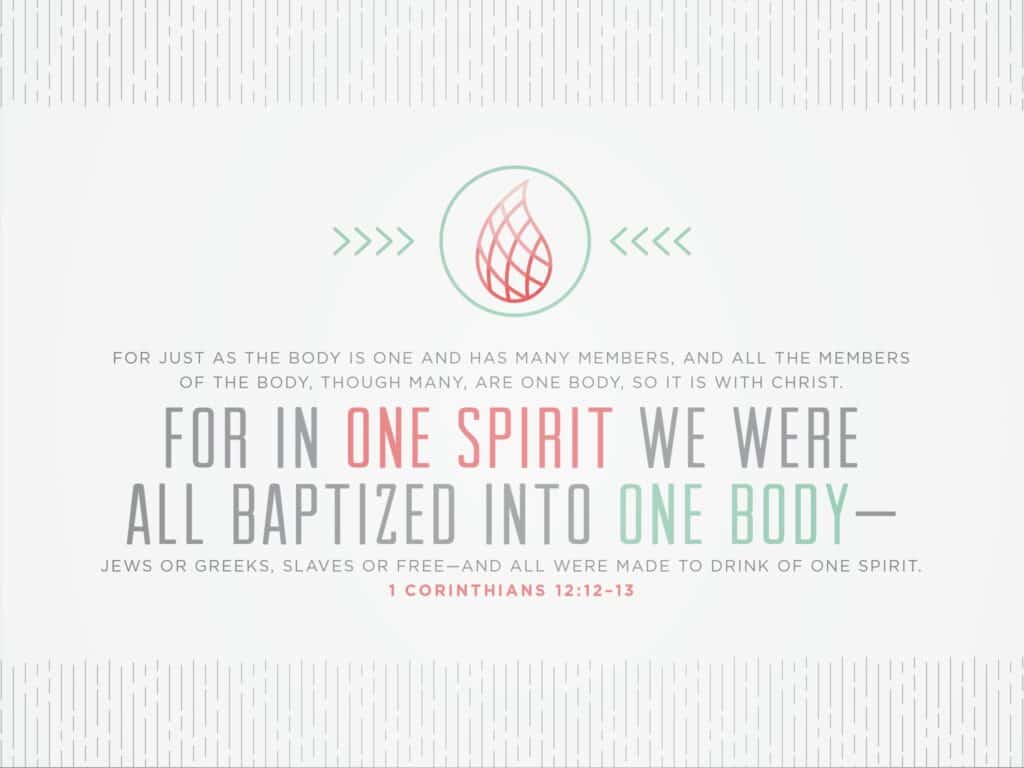
 Welcome and Announcements
Welcome and Announcements Welcome and Announcements
Welcome and Announcements
 Welcome and Announcements
Welcome and Announcements Welcome and Announcement
Welcome and Announcement Welcome and Announcements
Welcome and Announcements Welcome and Announcements
Welcome and Announcements Welcome and Announcements
Welcome and Announcements Welcome and Announcements
Welcome and Announcements
 Welcome and Announcement
Welcome and Announcement Welcome and Announcements
Welcome and Announcements
 Welcome and Announcements
Welcome and Announcements Welcome and Announcements
Welcome and Announcements Welcome and Announcements
Welcome and Announcements Welcome and Announcements
Welcome and Announcements






















































































 Welcome and Announcements
Welcome and Announcements Welcome and Announcements
Welcome and Announcements Welcome and Announcements
Welcome and Announcements Welcome and Announcements
Welcome and Announcements Welcome and Announcements
Welcome and Announcements Welcome and Announcements
Welcome and Announcements Welcome and Announcements
Welcome and Announcements Welcome and Announcements
Welcome and Announcements Welcome and Announcements
Welcome and Announcements Welcome and Announcements
Welcome and Announcements Welcome and Announcements
Welcome and Announcements Welcome and Announcements
Welcome and Announcements Welcome and Announcements
Welcome and Announcements Welcome and Announcements
Welcome and Announcements Welcome and Announcements
Welcome and Announcements Welcome and Announcements
Welcome and Announcements


 Welcome and Announcements
Welcome and Announcements Welcome and Announcements
Welcome and Announcements Welcome and Announcements
Welcome and Announcements Welcome and Announcements
Welcome and Announcements Welcome and Announcements
Welcome and Announcements Welcome and Announcements
Welcome and Announcements Welcome and Announcements
Welcome and Announcements












